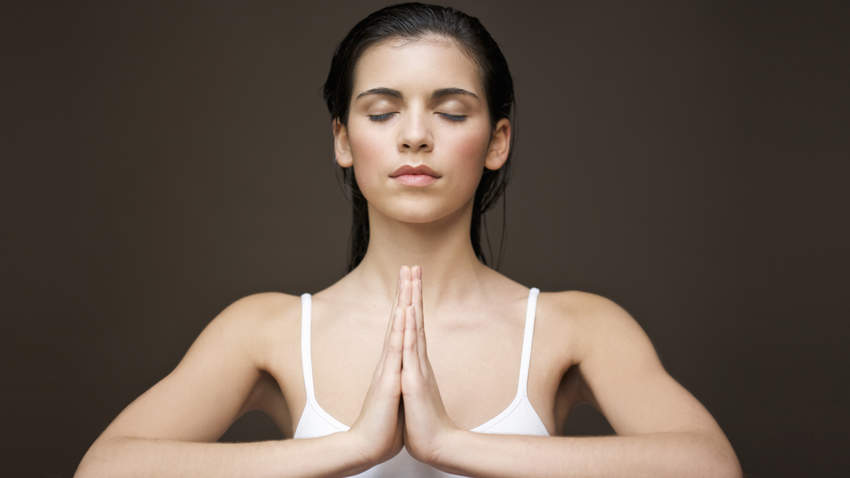Never dread the new week again.
It’s Sunday night and you feel it creeping in – that sense of dread as the working week begins. Come Monday morning, you’ll be bombarded with an overflowing inbox and endless calls. Seventy-eight per cent of people experience the ‘Sunday Night Blues’ according to a Monster.com poll.
The idea of meditating might seem like an impossible task, but the ancient Eastern practice could be the answer to ending anxiety and sleepless nights. Meditation isn’t just some complicated spiritual activity reserved for monks on mountain tops, as coach Will Williams explains. It can be as simple closing your eyes and focusing on the breath for 10 minutes.
For Will, it all started in an East London bar. He was working in the city at the time in a stressful, high-powered job. “I was out one night and my friend told me about this amazing meditation technique. He was a big shot himself. So I thought, if he’s up for it, then maybe I should give it a go.” Will had tried yoga and other relaxation techniques in the past to alleviate anxiety, but nothing quite clicked. “Within two weeks, my stress levels totally lifted. I became happier and more productive,” he says.
Will quit his high-flying career and spent two-and-a-half years travelling the world, practising with meditation masters, learning new techniques and gaining his first formal meditation coach training. “I became aware that it was the West that needed meditation more than anyone else,” says Will. “Technology has taken over and removed us from who we really are. People are more directionless. They go to work each day, not really knowing why. It’s just to pay the bills. There’s been a loss of connection. Meditation is great for lowering stress and reconnecting to who you are again.”
Meditation is also particularly good for anxiety – or quelling that pervasive ‘Sunday Fear’. In fact, vedic meditation has been shown to be 250 per cent more effective at reducing anxiety than other technique, according to a study by the Journal of Counselling and Development. “More people come to me because of anxiety than any other situation,” notes Will. “In the vast majority of cases, meditation reduces anxiety.”
“Our brain restructures itself according to experiences. If we keep living life in this high-octane way, our brain starts programming in anxiety on a daily basis. It just gets worse and worse. That’s why anxiety sufferers find themselves more easily triggered.” To offset that pattern, Will recommends meditating twice per day to encourage your brain back to its optimal state.
You’ll start to see the benefits of meditating after just a few weeks. The results are astonishing. “Meditation calms your nervous system, so you’ll see an improvement in your sleep quality. You’ll find yourself less anxious and less reactive in demanding situations,” says Will. After three months, you’ll find yourself having more stamina because the frontal cortex of your brain will be recharged with more physical, mental and emotional energy, explains Will. “This means you’ll be more productive, more creative and your relationships will improve because you are in a good space. You’ll feel happier and find more joie de vivre. There will be a spring in your step again.”
If you’ve struggled with meditation in the past, just keep trying different techniques until one sticks. “Choosing a meditation style is like dating. It’s not like you hook up with the first person you meet and decide to get married,” says Will. “You need space and time to actually start going out and dating other people to see where the chemistry is.” It’s the same for finding a meditation technique that works for you.
So next time you experience that sinking feeling on a Sunday night, try something new and sign up to a meditation course. Feel freedom from all that worry and soon the ‘Sunday Fear’ will be a thing of the past – and you’ll be ready to smash Monday when the alarm slams into action.
From: The Huffington Post



